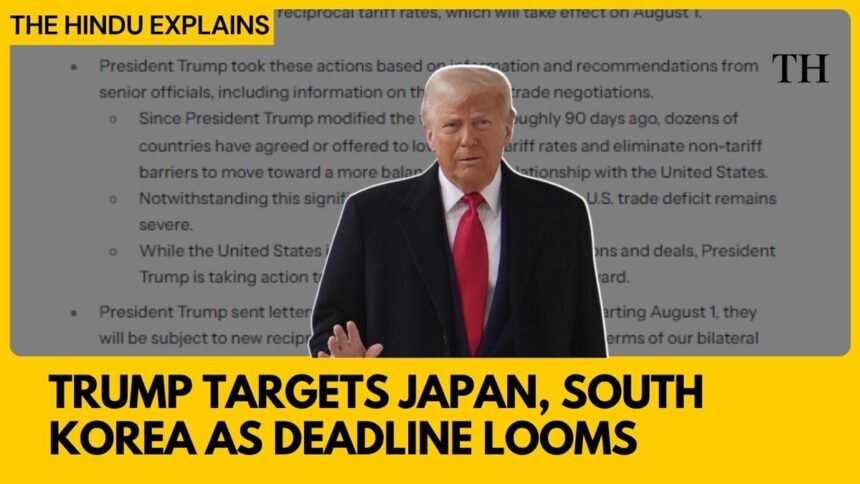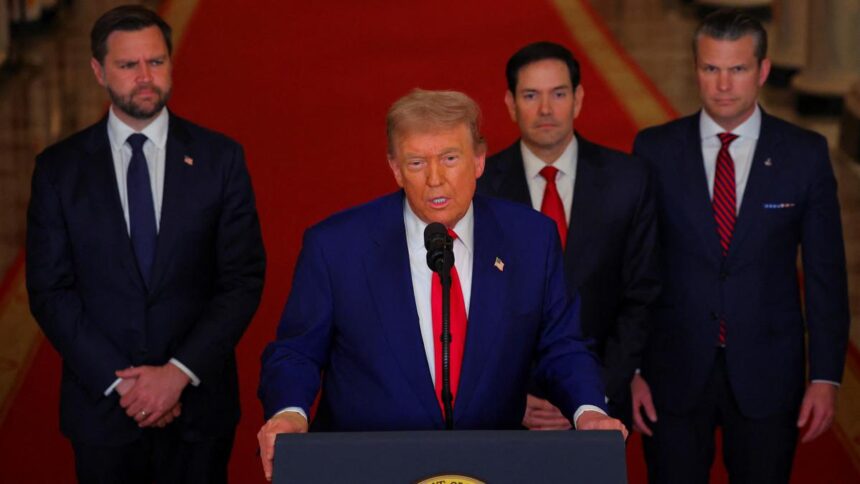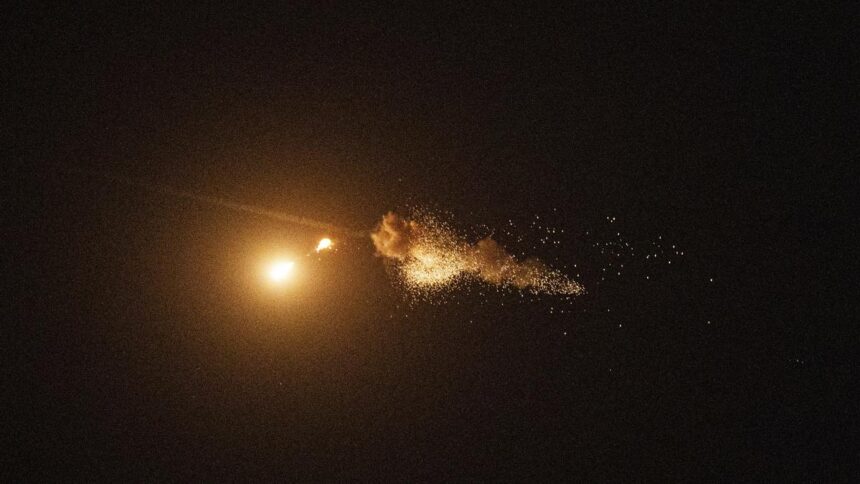
A protest in Berlin in solidarity with the children of Gaza
| Photo Credit: NADJA WOHLLEBEN
In a post on X criticising the Dutch Foreign Minister, Caspar Veldkamp, who resigned after failing to secure new sanctions against Israel over the war in Gaza, Israeli Foreign Minister Gideon Sa’ar wrote, “Europe must choose: Israel or Hamas. Every action against Israel directly serves the jihadist axis in the Middle East.”
His remarks indicate rising tensions between Israel and the European Union (EU). While Israel presses for unequivocal support from the EU, the group continues to adopt a cautious approach. Data shows that despite strong public opposition by EU member countries to Israel and Prime Minister Benjamin Netanyahu, and accusations of war crimes by international bodies, the EU remains reluctant to take any meaningful economic action against Israel.
In fact, Israel’s monthly exports to the EU peaked at $2 billion in March 2025 — the highest level recorded during the ongoing conflict. The chart below shows Israel’s monthly exports to the EU (in $)
Similarly, the EU’s monthly exports to Israel crossed the $2.4 billion mark only twice since the war began — once in December 2024 and again in March 2025. The chart shows the EU’s monthly exports to Israel (in $)
As the conflict intensified, trade between Israel and the EU also grew.
The EU’s reluctance to suspend trade ties with Israel is in sharp contrast to its response to Russia’s invasion of Ukraine. Less than a month after Russian President Vladimir Putin invaded Ukraine, the EU reduced both imports from Russia and exports to it.
The chart shows EU’s monthly imports from Russia (in euros)
The chart shows EU’S monthly exports to Russia (in euros)
This suggests that it views Russia as a direct regional threat, which prompted it to take strong action. On the other hand, it has limited its criticism of Israel to moral condemnations and gestures such as recognising Palestine as a state.
Last month, French President Emmanuel Macron announced that France would recognise Palestine as a state in September. If France follows through, it will become the fourth EU member after Spain, Ireland, and Slovenia, and the fifth European country, to recognise the Palestinian state since October 7, 2023.

The U.K., a former EU member, said it would recognise Palestine unless Israel agrees to a ceasefire. So far, 147 of the UN’s 193 member states have recognised Palestine. The chart shows the number of EU countries (including the U.K.) that recognised or are planning to recognise Palestine as a state.
While merchandise trade continues, Germany, a key military ally of Israel, announced earlier this month that it would halt the export of some military equipment to Israel. Germany has been Israel’s second major arms supplier after the U.S., accounting for 33% of its arms imports in 2020-24.
A PEW Research Center survey (January-April 2025) shows that neither Israel nor its Prime Minister enjoy support from Europeans. More than 50% of respondents in 10 European countries (nine EU members and the U.K.) held an unfavourable view of Israel.
The table shows the views of the public on Israel and the Israeli Prime Minister Benjamin Netanyahu across select EU countries and the U.K.
Close to 60% of respondents had no confidence in Mr. Netanyahu. Data from ACLED shows that there were at least 370 pro-Palestinian demonstrations in May alone, in EU member countries.
The unfavourable opinions have also translated into calls for the suspension of the EU-Israel Association Agreement, which came into force in June 2000 and provides the legal and institutional framework for political dialogue and economic cooperation between the EU and Israel.
However, at a meeting on July 29 in Brussels, EU foreign ministers proposed that Israel be partially suspended from participating in the £80 billion Horizon research programme.
According to a Reuters report, nine EU countries have also called on the European Commission to come up with proposals to discontinue EU trade with Israeli settlements in occupied Palestinian territories.
The data for the charts were sourced from the Eurostat, the United Nation’s COMTRADE, and the Pew Research Center
Published – August 29, 2025 07:00 am IST






















